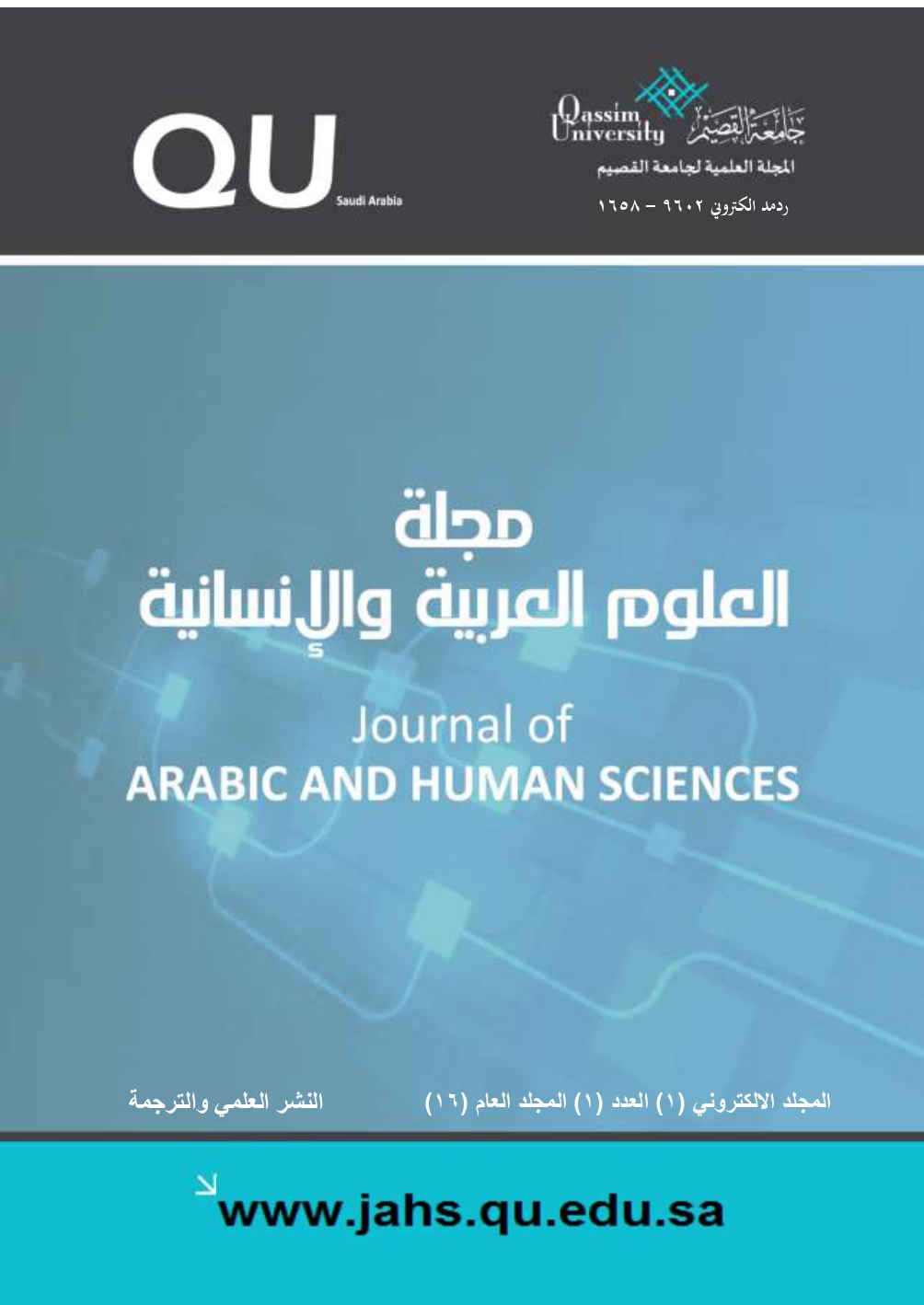The directive of Taj al-Din al-Kindi about Abu Hanifa's reading to the nominative case (Allaho) and accusative case (Al-olama'a) in the Holy Qur’an verse: (إنَّما يخشى اللهُ من عباده العلماءَ) Study and investigation
Abstract
This research thoroughly investigates a short text attached to the end of Sibawayhi’s manuscript (Gurum Pasha version) in which Taj al-Din al-Kindi studies Abu Hanifa's reading to one of the Holy Qur’an verses. It is one of the rare readings that contradict the popular readings of grammatical cases. Abu Hanifa is a well-known expert in Islamic jurisprudence law (fiqh). He proved through his inference with evidence from the Holy Qur’an, Arabic poetry, proverbs and Arabic speech that this rare reading is permissible for two possible reasons. The first could be that the verb (fear) in the Holy Qur’an verse does not mean fear, but rather carries meanings with which it is permissible to put the word (Allaho) in the nominative case and the word (Al-olama'a) in the accusative case. Among these meanings; Reverence, veneration, and consideration. The second reason for permissibility could be the sentence reversal, which is a commonly used style by the Arabs in their speech.
The present research includes two parts. The first is a study on Taj al-Din al-Kindi, and on rare readings, and the scholars’ disagreement about Abu Hanifa’s reading of a verse from the Holy Qur’an. While some of them confirm this reading, others refuse it. The second consists of an investigation of the text of Taj al-Din al-Kindi, with a commentary when it is necessary.


